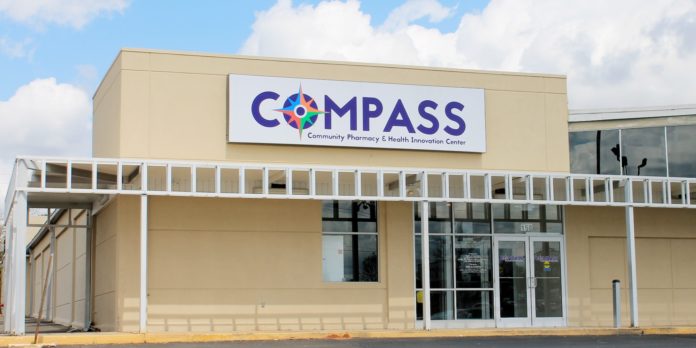MACON – Mercer University School of Medicine’s Department of Community Medicine and the North Central Health District’s COMPASS Cares Community Pharmacy and Health Innovation Center were recently awarded a $600,000 federal grant from the U.S. Department of Health and Human Services Health Resources and Services Administration (HRSA) as part of the Special Projects of National Significance (SPNS) Program.
The SPNS program supports the development of innovative models of HIV care and treatment in order to quickly respond to emerging needs. COMPASS Cares’ HOPE Center, a comprehensive, Ryan White-supported health clinic in Macon for people living with HIV/AIDS, is one of 10 sites nationally selected for this award.
The grant project, titled “Building Capacity to Implement Rapid Antiretroviral Therapy (ART) Start for Improved Care Engagement in the Ryan White HIV/AIDS Program,” will support a multidisciplinary team-focused intervention to provide Rapid Initiation of Therapy (RIOT) to clients who are new to care and newly diagnosed with HIV/AIDS.
RIOT reduces the overall average time to therapy initiation from 14-20 days to no greater than 72 hours, thus shortening the time between diagnosis and viral suppression, lowering the risk of transmission sooner and improving the rate of retention in care.

“Since 2018, Georgia has had the highest rate of HIV seroconversion in the nation and 71% of new cases were African-Americans, mostly young men and women, between the ages of 17-31,” said Alan L. Wells, Ph.D., MPH, associate professor of community medicine in the School of Medicine. “Our health district also has the added burden of serving rural Central Georgia counties where small hospitals have limited ability to respond to the specialized care needs of people living with HIV/AIDS. Compass Cares provides much needed transportation and primary care to people with AIDS in rural counties, and this grant provides the resources to get people into treatment sooner.”
Dr. Wells serves as co-principal investigator on the grant, along with Dale R. Wrigley, director of the HOPE Center.

“We’re excited to continue to work with our partners at Mercer University School of Medicine to provide increased access to the health services our community needs. HOPE Center’s goal has always been to improve the health and well-being of everyone we serve, and these early intervention initiatives will give us more tools to work toward that goal,” said Wrigley.
Cumulatively, the 13 counties of the North Central Health District served by the HOPE Center rank sixth of 18 statewide health districts in cumulative number of people living with HIV/AIDS and fourth outside Metro Atlanta.
The district continues to see an annual increase of more than 100 individuals who are new to care and/or returning to care, making Middle Georgia a national epicenter for new HIV infection.
The Ryan White-supported HIV/AIDS clinic has served the region since 1985 and provided services as the HOPE Center since 1989, operating under the medical direction of world-renowned infectious disease doctors and spearheading new approaches to HIV/AIDS care. The center joined with a new community pharmacy, clinic and health innovation center in 2019 to become COMPASS Cares, a hub for health services, community activities and collaboration.
The center, located at 180 Emery Hwy. in Macon, serves those living and affected by HIV/AIDS, providing a comprehensive, personalized approach to treatment that includes medical services, behavioral health services, peer counseling and assistance with housing, transportation and finances.
About Mercer University School of Medicine (Macon, Savannah and Columbus)
Mercer University’s School of Medicine was established in 1982 to educate physicians and health professionals to meet the primary care and health care needs of rural and medically underserved areas of Georgia. Today, more than 60 percent of graduates currently practice in the state of Georgia, and of those, more than 80 percent are practicing in rural or medically underserved areas of Georgia. Mercer medical students benefit from a problem-based medical education program that provides early patient care experiences. Such an academic environment fosters the early development of clinical problem-solving and instills in each student an awareness of the place of the basic medical sciences in medical practice. The School opened a full four-year campus in Savannah in 2008 at Memorial University Medical Center. In 2012, the School began offering clinical education for third- and fourth-year medical students in Columbus. Following their second year, students participate in core clinical clerkships at the School’s primary teaching hospitals: Medical Center, Navicent Health in Macon; Memorial University Medical Center in Savannah; and Piedmont Columbus Regional Hospital and St. Francis Hospital in Columbus. The School also offers master’s degrees in family therapy, preclinical sciences and biomedical sciences and a Ph.D. in rural health sciences.










